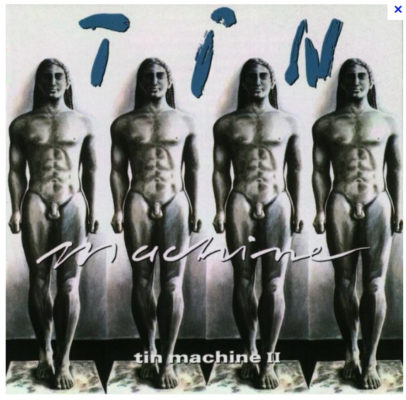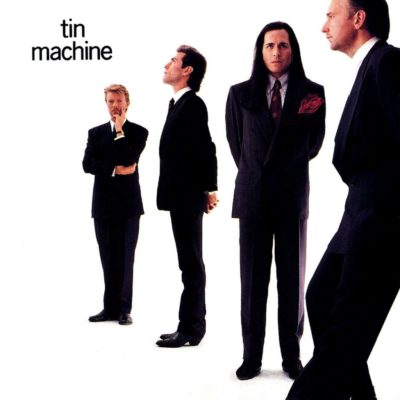Terry Goodkind doesn’t seem particularly good or kind, although he’s definitely a Terry, so one out of three isn’t bad.
He is also not a fantasy author. It’s very important that you know this. Despite where he’s shelved in bookstores, despite what mythical creatures appear on his covers, he is not a fantasy author. Sample from this non-fantasy novel: “Magic!” the dragon gasped in mock fright. It put a claw to its breast. “Oh, please, brave man, don’t slay me with your magic sword!” It made a smoky rumble that Richard took for laughter.
In an infamous 2003 interview with USA Today, Goodkind responded to a question about Robert Jordan with “If you notice a similarity, then you probably aren’t old enough to read my books”. Jordan’s wizards, magic, and dragons are expressions of juvenilia, while Goodkind’s are an exploration of human truth, or something. Massachusetts-based grindcore band AxCx wrote a song called “Face it, You’re a Metal Band”. I wrote the previous sentence for no reason.
Goodkind is inseparable from early 90s fantasy, and a time when the genre was never more tedious, bloated, or unnecessary. Terry Brooks, Raymond E Feist, David Eddings were producing retreads of their past series, and Robert Jordan had begun work the massive monument to dead trees known as the Wheel of Time. So many huge fantasy books were released that bookstore shelves probably remember the era the way Cambodians remember the Khmer Rouge – a time of great suffering, where only the strong survived. In this market, Goodkind’s 900-page doorstoppers immediately found readers.
But what about the book?
The plot establishes a typical monomyth: young Richard Cypher is appointed as “Seeker” and must save a woman from the villainous Darken Rahl, who may need to work on his branding.
When I read it at age twelve, I was soon bored. The story wasn’t moving, and Goodkind has an astonishing ability to create confusion: a wizard character infodumps for thousands of words about what, exactly, a Seeker does, and I left the passage more perplexed than ever.
But then the pace picks up, and Wizard’s First Rule shows its colors as a violent, gritty human interest story of the kind that bloggers ten years later would call “grimdark”. It lacks the impact and power of George RR Martin’s books (in particularly, it’s not believable that the comically evil villain gets so many people on his side), but it’s still well beyond Jordan.
In particular, Goodkind seems to like rape. I don’t believe there’s a single female character in the book, if not the entire series, who isn’t raped or threatened with rape at some point. Two thirds of the way through, the plot takes an excessive but audacious turn into outright Gor territory, with Richard enslaved to a leather-clad dominatrix. This is probably the moment where Goodkind finally lives up to his “mature Jordan” claim. I’m conflicted on this part: it strangely works, giving Richard some of the most severe but effective character moments I’ve yet read in a fantasy book. But it also reads like a Gor book.
Even at its best, Goodkind’s work are foothills to GRRM’s mountains. His worldbuilding makes no sense: it’s established that fire is forbidden in Darken Rahl’s kingdom, but they seem to have no problems forging weapons, making pottery, cooking food, and so on. Writer’s convenience abounds: the typical way you escape danger in Goodkind’s books is to use or discover some new piece of magic that was never mentioned before.
I don’t recommend the books after three or four, which delve ever deeper into mumblecore obscurantism and Goodkind’s political opinions (he likes Ayn Rand). But the early ones do, in fact, have entertainment value, although I appreciate them as spectacle more than literature. Terry Goodkind might not be a fantasy author, but he’s not an entirely bad one, either.
No Comments »
There was a fool-me-once quality to Tin Machine’s debut. Overlong, overloud, “artistic” in all the wrong ways, initially it had strong sales (unlike the bass and drums, which had rather the opposite), but the singles gained no traction, and it soon slid from the charts. When Bowie presented EMI with a follow-up, the label refused to release it.
Tin Machine II was finally issued in 1991 by fly-by-night Japanese label Victory Records. This time, nobody indulged Bowie’s vanity project. The press it received was scornful, and the album stalled out at #23 on the UK charts. For six months the band stubbornly toured it to thousand-seat venues, Bowie rapidly burning through his savings in the process. By the end of the tour, Hunt Sales’s drug addiction made it intolerable to go on, and by 1994 the band was over.
It’s a shame, because II is better than I. Time had forged the band into something stronger than their parts: Hunt Sales no longer buries the songs under drum fills, Reeves Gabrels has dialed back the noise, and David shows up with some of his best songwriting in half a decade.
Opener “Baby Universal” is a star witness in the case that the Machine deserved to exist. Driving and punishing: this song has no fat or wasted moments. Curiously, this was written in the earliest days of Tin Machine, before the Sales brothers joined the project. Bowie delivered his best work in a narrow set of circumstances: him and a collaborator, alone. Aside from the Spiders, he rarely benefited from a full band.
Other cuts like “You Belong in Rock and Roll” and “Amlapura” also present David’s maligned new project in a more positive light. The lyrics go to dark places, particularly “Shopping for Girls”, which is about Reeves Gabrels’ encounters with child prostitutes in Thailand (for an article, natch). They’re more diverse: the guitars shimmer and splash rather than just grinding like a rusty gate, and the songwriting has a bit of dynamism to it: it’s flowing water, where TMI was a series of stagnant and scum-encrusted pools.
Which is not to say TMII belongs with the best Bowie albums, or the mid-rank. “One Shot” is just obnoxious, laughably oversung by Bowie, with awful Europop “wooo-hoo-hoo” backing vocals from Tony Hunt. Astonishingly, this was a single. Perhaps Victory wanted their customers to have a beer coaster. “Stateside” is musical irrelevance personified. “A Big Hurt” is an unconvincing dad-rock take on hardcore punk.
The direst moment is “Sorry”, a musical head cold with Hunt Sales on vocals. He sounds terrible, the music meanders, and the whole thing prays to be on a floor of a cutting room variety.
Just as TMII seems to be gassing out, it delivers the greatest song in the band’s existence and the best thing David Bowie wrote in ten years. “Goodbye Mr Ed” is a threnody sung in the ruins of rock. Bowie’s vocals are both haunted and disaffected: the sound of a man demon-haunted for so long that terror has yielded to weariness. The massive ritardando capping each chorus has almost heart-freezing power, and the song ends with a crazy free-time jam from Gabrels and the Hunts. This time, it doesn’t sound comical or self-indulgent.
It wasn’t enough. Tin Machine II flopped, what little attention it got mostly revolving around the dicks on the cover. Bowie didn’t know it, but the 1991 was going to kill his band. Nirvana’s Nevermind (containing a more polished edition of Tin Machine’s noisy sound, and ironically, another cover with a dick) would come out in a few months, and instantly make Tin Machine seem tired and irrelevant. The grunge movement reshaped the musical landscape, burying artists like Tin Machine like fossils in the rock stratum of history. Faced with young and hungry bands from Seattle, there was nowhere for Bowie to go except the door.
Sometimes people survive trauma, only to die in their beds or in an ambulance. Tin Machine ambled on for a few more years, but the death blow happened in 1991. Tragically, that’s the year they made an album proving they deserved better.
No Comments »
David Bowie’s career resembled a story, and in 1983 the story became an outright cliche: he hit triple cherries with Let’s Dance, his career ascended to never-before-seen heights, he flew too close to the sun, his albums became confused and over-calculated parodies of themselves, his old fans rejected him, his new ones moved on past him, everything was falling down around him, he starred in a big budget Fraggle Rock adaptation or something, etc, etc.
Tin Machine was supposed to fulfill the “triumphant comeback” part of the story. Back to the basics! No more synths, and no more selling out! Here comes Bowie, fronting a rock band! If that sounds wonderful, here comes the pain: Tin Machine’s 1989 debut is absolutely awful. It isn’t a reinvention, it isn’t a return to form, and compared to his derided mid 80s work, it’s actually worse in many respects.
The album is smug. This is hip, happening music for hip, happening people, and you can imagine it sneering at the records you’re shelving it with. Twenty years earlier, Bowie wrote “Join the Gang”, a song inspired (in part) by his exclusion from London’s counter-cultural artistic cliques. If they’d known he had this record in him, they’d have ushered him in through the VIP entrance. Tin Machine I is straight outta Gangland.
As mention, Tin Machine’s “hook” is that it’s a band. As with Eminem’s D12, you’re not supposed to notice that it contains one of the biggest stars in music (the cover underscores the point, with Bowie occupying the least amount of space out of the four). His bandmates are Tony and Hunt Sales (of Iggy Pop fame) on bass and drums, and Reeves Gabrels on guitar. Gabrels would eventually become the Ronson and Alomar of the 90s: Bowie’s trusty hired gun, and collaborator on many great songs. Here? SKREEK SKRAWK REE WEEDLE WEEDLE KERRRAAAANGG. There – you’ve heard his entire performance.
Hunt Sales is just irritating, pounding songs into the ground with flurries of 16th note snare fills. On some tracks (particularly the coda of the first one) his drumming approaches outright aural sabotage. TMI‘s music was written in a spontaneous, quasi-improvised fashion: for this to work, the four members need chemistry, and the low-grade telepathy of sidemen who have worked together for a long time. None of that intuition is on evidence here. It’s a three legged race, everyone tripping each other up.
The album’s problems become manifest as soon as “Heaven’s in Here” starts choogling away. Loud, noisy, and boring, it’s one of the worst songs on the record. “Tin Machine” sees Reeves yanking an interesting melodic idea from the upper frets, and Bowie follows it up with…nothing. “Take me anywhere!” How does the cut-out bin sound? “Prisoner of Love” is Dire Straits made dull and nondescript: it’s the musical version of a paving slab. “Crack City” is dumb (in an ironic nod-and-wink way), rocking out with a hard-edged riff and a pretty powerful chorus. Apparently the lyric is based off Nassau, where part of the album was recorded.
Health check: we are now nineteen minutes in, and have heard two good riffs and one good chorus. You call that a comeback? This is pathetic. Those junk Bowie bonds had a better rate of return. Scary Monsters gives you twice as many inspired ideas five minutes after you drop the needle, and at least Never Let Me Down offered up “Time Will Crawl” by now!
“I Can’t Read” is interesting, because it contains all the things that make Tin Machine insufferable (Reeves overplaying, Sales overdrumming, noise instead of coherency)…but it ends up being captivating. Bowie’s vocal is as raw and ugly as a half-bandaged wound as he ponders writer’s block (a topic addressed in “Sound and Vision”, although the two songs have no other similarities). At the end, he comes apart entirely. I don’t know how much of it as an act, but it’s a powerful moment.
The rest of the album blunders and crashes to its conclusion, offering up the occasionally highlight. “Bus Stop” is energetic and fun as hell – an uncharacteristic brush with hardcore punk. “Working Class Hero” can fuck right off. It joins the rare class of songs I literally cannot listen to because they make me angry (the class valedictorian is “Yassassin”, with “God Knows I’m Good” as salutorian and “The Buddha of Suburbia” third in class).
The reason I dislike alt-rock (a style that TMI is heavily inspired by), is that it holds the listener in contempt. You don’t play Nirvana’s In Utero, you’re condescended to by it. It’s smart, you’re dumb, now here’s ten more tracks of underproduced fuzz so you get the point. Bowie’s music was always clever, but it never tried to be better than the listener. “Sweet Thing” and “Warszawa” invited you to understand then. TMI is fifty-six minutes of Bowie and company gurning and giving you the finger.
All the excesses of the grunge era are here, several years too early. Bowie didn’t even fully succeed in escaping his pop persona, after EMI sulkingly released the album with stickers advising buyers that it was made by the guy who did Let’s Dance.
No Comments »



